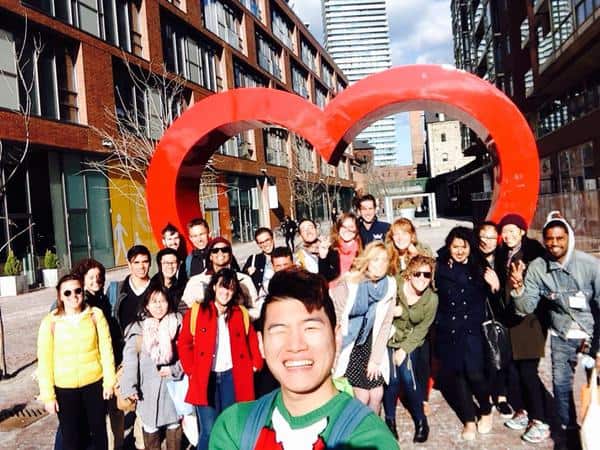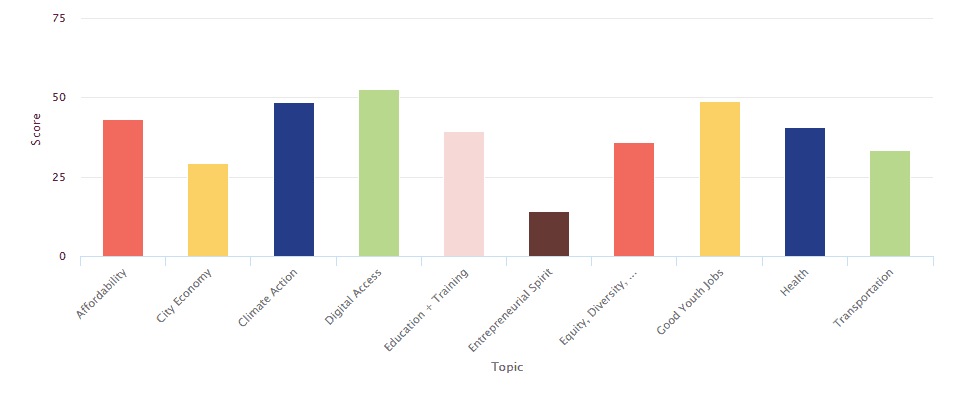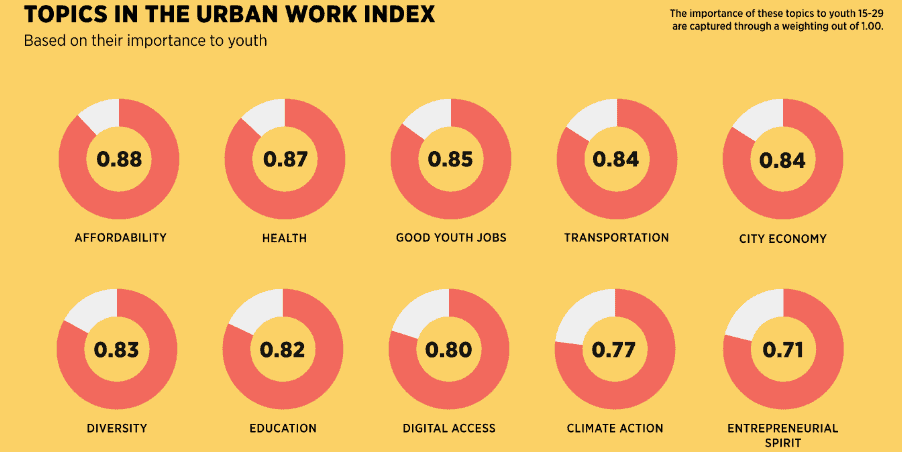Oshawa 28th of 30 cities for youth to work in Youthful Cities Index – Toronto #1
Published May 30, 2023 at 12:24 pm

Toronto has been named the as top city for youth to work in Canada in the Youthful Cities 2023 Urban Work Index, despite finishing dead last in affordability and with the biggest loss of youth population.
Oshawa finished 28th of 30 cities on the bi-annual list, earning a 7th place ranking for population change over the past five years – adding 48,000 people – and 13th for health, with high marks in the report for post-secondary mental health services.
The city also ranked sixth for the number of food banks per capita (seven total) but finished last for transportation with the longest average commute time by public transit – 56.1 minutes vs the national average of 38 minutes – and 28th in the economic category with a low ranking for its labour force participation gender gap.
Oshawa, with a population of 175,000, has a youth population (15-29) of 36,945. Its 28th ranking in the report was ahead of only St. John’s and Yellowknife.

The cities were evaluated using key indicators such as climate action, equity, diversity, and inclusion, good youth jobs, digital access and affordability.
Toronto took top honours nationally, ranking in the top five for seven of 10 topics and coming in first in Education and Training, Digital Access and Entrepreneurial Spirit – it’s home to the most start-ups in the country.
Montreal and Vancouver took second and third, respectively.
The report was presented by RBC Future Launch and Mark Beckles, the vice-president, social impact & innovation at RBC, said the results provide “key information” to young people across Canada about the most inclusive and accessible places to work in Canada, which can spark a national dialogue on the future of urban work and youth’s critical role in it.
“RBC Future Launch focuses on preparing young Canadians for the jobs of tomorrow, and where they live is one of the biggest decisions at the beginning of their careers,” Beckles said. “Our partnership with Youthful Cities allows us to bring together governments, public and private sector partners, city builders and young people to explore the topic of urban work – what’s working well and what needs to improve.”
Montreal earned strong scores in Transportation, Education and Training and Entrepreneurial Spirit. Its public transit system has the highest hourly availability per week, a transit app and strong safety features and high connectivity scores for its links to the airport. Montreal also had the best bike and walk scores.
Vancouver came in number one for climate action with its strong composting bylaws, including curbside pickup and multi-unit programs, a well-rounded recycling program, and the most nature trails for residents. Vancouver also finished third in Entrepreneurial Spirit.
Charlottetown, in number four, finished in the top ten in seven of ten topics and top five in City Economy, Good Youth Jobs, Climate Action and Health. The PEI city, population just 38,000, ranked in the bottom 10 for Transportation, Diversity, and Digital Access.

The rest of the top ten include Kitchener-Waterloo, Ottawa-Gatineau, Mississauga, Quebec City, Laval, and Halifax. Other Ontario rankings include Hamilton (13), St. Catharines-Niagara (16) and Brampton (17).
Brampton finished first in Equity, Diversity, and Inclusion with the highest population of immigrants per capita and a high population with a non-official first language. It also has strong municipal policies for anti-racism and anti-discrimination, as well as accessible public spaces.
Other notable rankings include Moncton – ranked number one in Good Youth Jobs, with the second highest percentage of youth (15-29) employed and strong scores for access to post-secondary career services, and Yellowknife, which was ranked in the top three for City Economy with the youngest population, one of the smallest gender gaps in labor force participation and the fifth lowest gender wage gap among the 30 cities.
“As post-pandemic recovery continues, the future of work for young adults remains precarious,” said Raj Dhaliwal, index lead, Youthful Cities. “Work environments, emerging changes across sectors, wages and inflation will continue to impact young people’s decisions around work, and in doing so, how they live and contribute to a city.”
How the Index works:
- Ten topics were identified in consultation with youth at the Urban Work Summit Edmonton 2019
- Measurements were reviewed and developed based on relevancy
- Data sources were identified, and data was collected across 30 cities
- Data and measurements were reviewed for accuracy and relevancy
- Cities were scored and feature scaled on each measurement, receiving between zero and 100 points
- Scores were weighted based on a survey of how important each topic is to youth, producing the final ranking
Youthful Cities has designed programs that expand the base of urban knowledge while engaging youth (15-29 years) to develop innovative solutions to their cities’ critical issues since 2012.







